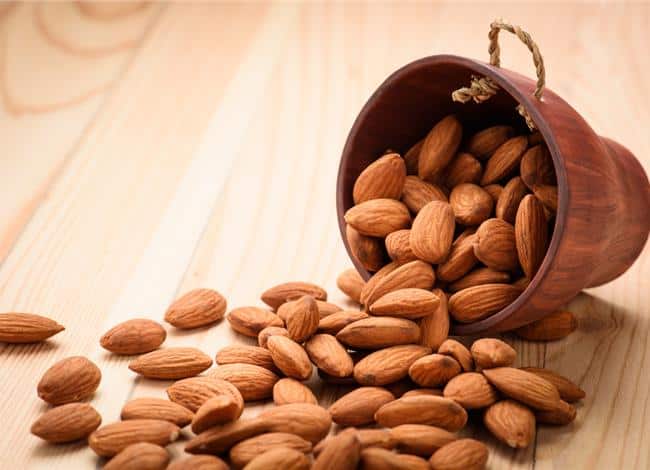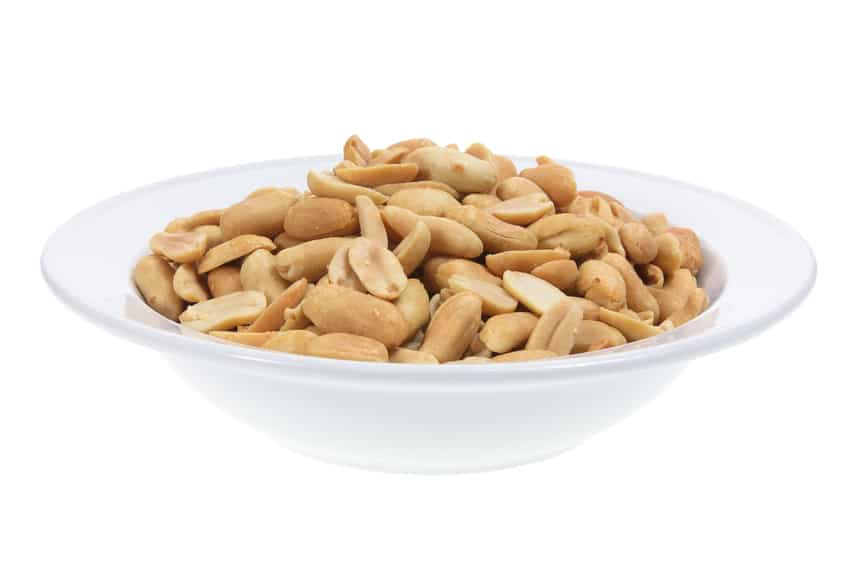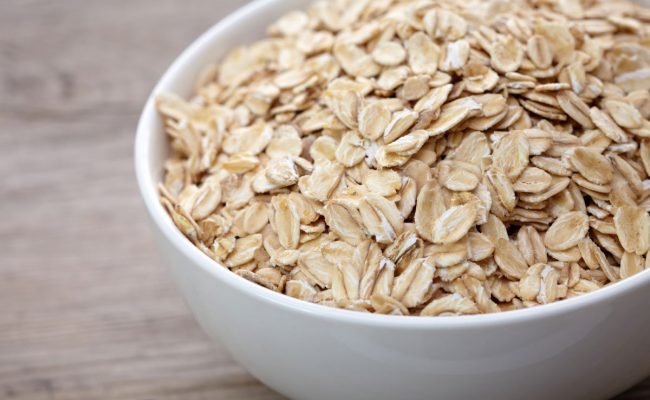
All tree nuts and peanuts can be considered nutrient dense foods. They are a source of heart healthy fats, protein, fiber, vitamins, minerals and antioxidants. Even though they are high in calories, eating nuts is not associated with weight gain. A 2003 article from American Society for Clinical Nutrition found many studies concluded diets with nuts do not increase risk for weight gain.
In fact, eating nuts could actually help with weight loss or maintenance.
Some evidence suggests eating nuts, whether almonds, peanuts or other tree nuts, is also associated with a lowered risk for certain cancers, hypertension and lowering inflammation (1).
Peanuts are not actually tree nuts. They are technically considered in the same legume family like lentils, black beans, etc. However, the nutritional profile of peanuts is more similar with tree nuts, so peanuts are often lumped together with tree nuts.
Peanuts and almonds are higher in certain nutrients, but both can be considered beneficial for heart health and may even offer lowered risk of overall mortality.
Both peanuts and almonds have health benefits, and there can be health benefit to eating both types of nuts.
See also:
Side Effects from eating too many almonds
Peanut Butter VS Almond Butter
Here is a breakdown of some of the differences and benefits of both almonds and peanuts.
Protein, fat and fiber content
The macronutrient composition of almonds and peanuts are similar. A one ounce serving, about the size of a small handful, provides about 160 calories for each.
A one ounce serving for both provides 14 grams of fat, but almonds have a few more grams of monounsaturated fat than peanuts.
A one ounce serving of almonds provides about 3.5 grams of protein, and a serving of peanuts provides about 2.5 grams of fiber.
Peanuts have about 7 grams of protein per serving, and almonds have about 6 grams.
A one ounce serving of almonds or peanuts provides about the same nutritional value. Both are a source of protein, heart healthy fats and fiber.
The combination of protein and fiber make them an especially satisfying food.
Heart health
Nut consumption in general is associated with a reduced risk for cardiovascular disease. A 2015 study (2) looked at the impact of nut intake on health across many different ethnicities and socioeconomic status.
Researchers concluded nuts, in particular peanuts, may be considered a cost effective way to improve cardiac health in people.
Why peanuts especially? Peanuts are a cheap food option, especially compared to other tree nuts. People on a limited budget may be more likely to include peanuts in their diet because they are more affordable.
Research suggests peanuts have just as good as, if not better, impact on cardiovascular health compared to other nuts.
Almonds are also beneficial for heart health because they contain the highest amount of vitamin E compared to other nuts (3).
Vitamin E is an antioxidant that can help protect cells from damage caused by free radicals. Free radicals can cause damage in the body associated with diseases like heart disease, cancers, dementia and other chronic diseases.
Vitamin and mineral content
According to Harvard Health (an ounce of any nuts will provide about 10-20% Daily Value of magnesium.
This is important because many American adults don’t get the recommended daily intake of magnesium. Almonds edge out other nuts for magnesium content.
Magnesium is used for protein synthesis, muscle and nerve function, blood pressure regulation and bone health (4).
Peanuts are higher in folate amount. Folate is needed for proper development of dividing cells, which is why pregnant women need to be careful to get proper amounts of folate.
Folate from foods may also help lower risk of some types of cancers (5).
Nuts are usually not thought of as a calcium source, but ounce for ounce, almonds have provide the most calcium among nuts according to Cleveland Clinic (6).
An ounce of almonds can provide about 75 milligrams of calcium. People at risk for not getting adequate amounts of daily calcium could benefit from incorporating almonds as a snack.
Almonds and peanuts provide many other nutrients. A serving of peanuts or almonds also provides a little iron, about 6% Daily Value.
Effect on weight balance
Both almonds and peanuts can be beneficial for maintaining a healthy weight. There are not many studies that compare the effects of almonds compared with peanuts.
Most studies looking at the benefits of nut consumption on health are for nut intake in general and does not distinguish between different types of nuts.
Since nuts are high in fat and protein, they could help regulate appetite after eating because they help keep you feeling satisfied.
How much should you eat?
A serving is considered an ounce to an ounce and a half. Eating this amount daily, or most days of the week, is recommended for maximal benefit of nut consumption.
Conclusion: almonds or peanuts?
Clearly both almonds and peanuts have nutritional benefit. Both can be helpful for maintaining a healthy weight when incorporated into a healthy, balanced diet.
Both nuts provide about the same calories, fat, protein and fiber content.
Both nuts provide many vitamins and minerals, but almonds offer just a little more magnesium and calcium. Peanuts, on the other hand, offer a little more folate.
Both nuts can be beneficial for heart health. Since peanuts are relatively cheap food source, especially compared with other nuts, they can offer a cost effective protection against cardiovascular disease.
Which one is better? It is not necessarily one versus the other, but instead both offer great nutritional benefits. Why not have both, or better yet, many different types of nuts in your diet?
As Harvard Health, suggests, no nut is the clear winner. Instead, opt for eating a variety of nuts in your diet along with a variety of other plant foods.











